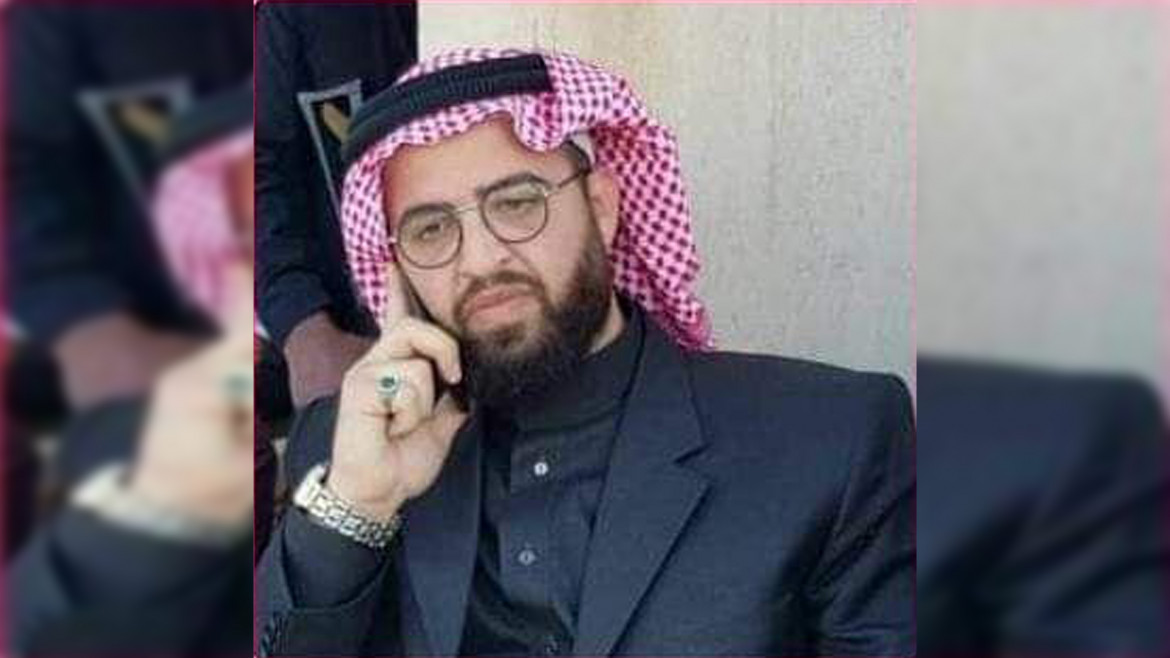In a deal with the Assad regime, the SDF took the dangerous step of releasing Omar al-Ammouri, one of the most prominent former ISIS leaders, who held several leadership positions, one of which was a member of the Mujahideen Shura Council.
Amouri, nicknamed “Abu Bakr al-Homsi” and “Abu Bakr Qaryatain”, was known as the oil mediator between the ISIS and the Assad regime, and was in direct contact with Husam Qatirji, a member of the People’s Assembly of the Assad regime, and the godfather of oil and gas deals between the regime and ISIS.
According to the available information obtained by the Euphrates Post from a private source, Amouri was released about a week ago, to leave for Damascus for several days, before returning during the past two days to the areas of control of the regime in Deir Ezzor, specifically to the neighborhood of al-Joura.
According to the information provided to us by the source, Amouri began to oversee and communicate with the regime’s representatives deployed within the areas of control of the “SDF”, who were assigned by the security services and the party part of a number of tasks, including the approach of reconciliation, and persuade the people of the region to return to “areas of the system” And reconciliation with the Assad regime.
On April 24, the Euphrates Center Against Violence and Terrorism published information about al-Ammouri, who was classified by the center as a war criminal.
He was a resident of Damascus working in the field of transporting fuel between Homs and Damascus, through his office in the “Kafr Sousa Mall”, and buys fuel from licensees from the Homs refinery and sells to the owners of factories in Damascus countryside.
Al-Amouri then fled to appear in the eastern countryside of Deir Ezzor in the town of Khasham, pledging allegiance to Jabhat al-Nusra.
When ISIS took control of the area, Amouri and his brothers declared allegiance to ISIS, becoming security princes, and their work continued with oil, but more broadly, Omar became the godfather of the oil trade in partnership with Hossam Katerji, and began oil deals and contracts between the regime and ISIS and SDF.
Al-Amouri owned a number of remittance, exchange and gold shops in the city of Raqqa. He also used his position to start with the support of ISIS in the slave trade and selling Yazidis.
He bought and sold “captives” to ISIS princes, and continuously held at least Yazidin at his farm in the countryside of Raqqa.
During the retreat of ISIS, he was arrested for murder, sentenced to death, and, by virtue of his position and authority, he and his brothers were not executed and subsequently released.
when the SDF took control of the area, he and his family stayed in the city of Qamishli, returning to the oil trade again and signing with his brothers a contract to supply 70 oil tanks to the Homs refinery daily.
In addition to the smuggling of oil and its derivatives to areas of the regime in coordination with the so-called “Abu Sondos”, who lives in Ezbet Khasham, and frequented to Damascus from time to time, and is in direct contact with the National Security Office headed by Ali Mamlouk.
By tracking the Euphrates Center for the pursuit of war criminals to Omar al-Amouri’s movements,Details of his whereabouts in the SDF’s influence areas, which were captured in the city of al-Qamishli as part of a raid by the international coalition, are provided.
Following his arrest, the Euphrates Center presented a video testimony of a displaced civilian from the village of al-Qaryatain in Homs countryside.Al-Amuri killed his brother during his time in ISIS, but only months after his arrest, he is now free to travel around the Assad regime’s control areas.
It is noteworthy that the “Euphrates Post,” highlighted earlier the ongoing oil trade between the “SDF” and the Assad regime, and the passage of dozens of tanks daily through Tabkah city, and the contractor where the company Katerji itself, and the owners of the “People’s Assembly”, Hossam Katerji, and his brother Muhammad, an American punished.
The Euphrates Post also received other information confirming that the company itself, currently operating in areas under the control of the regime in Deir Ezzor, through its subcontractors, in order to implement the so-called system of reconstruction projects.
The US Treasury has imposed sanctions on individuals and entities linked to the regime of Bashar al-Assad, and prohibited US citizens from dealing with them, commercially.
Among the people affected by the sanctions, a businessman close to Assad, Mohammed al-Qaterji, as well as sanctions against his company (al-Qaterji), which had previously dealt with the “ISIS”, whether through the trade of oil or food.
One of ISIS leader released after deal between SDF and regime
530

